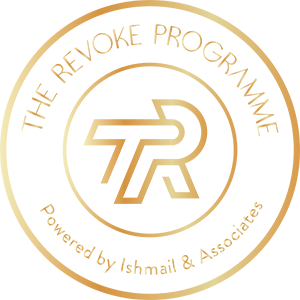“The opposite of addiction is connection.” – Johann Hari
The recent pandemic has resulted in most working professionals being confined to their houses, and many jobs have moved to work from home permanently. The ‘new normal’ for many means days without face-to-face contact with other humans, except for video calls.
Even before COVID, TUC analysis stated that “workers in the UK are putting in the longest hours in the EU,” and this, combined with the current work from home conditions makes it easy to feel disconnected from society. We live in a fast-paced and frenetic world, where we often lurch between periods of manic stress with no time to unwind in between. Often, people find solace in a bottle, a line of cocaine, or some other mind-altering substance, and alcohol deaths reached all-time highs in the past year.
There is no doubt that addiction compounds loneliness. It hijacks the reward system our brains use to keep us alive and out of harm and compels us to pursue damaging and dangerous behaviours. We become one-track minded and disconnected from our loved ones and those around us. As our addiction worsens, this effect snowballs, and soon we can feel totally alone in the world.
Addiction also carries a certain stigma with it – we might feel ashamed that we can’t control something or be worried it will affect our careers or romantic relationships. Professional treatment provides a non-judgemental and compassionate environment for you to share your struggles, triumphs, and challenges with like-minded people.
We Need To Connect To Survive
Connection with others isn’t a luxury – it’s a necessity for our survival. It’s as vital as the need for us to have food, water, and shelter. We didn’t evolve to be solitary beings – we’re social creatures that need to feel part of a community. Our emotional resilience, self-worth, and self-esteem are tied to feeling part of something larger than ourselves.
When we have strong social relationships, we feel better and live happier, healthier lives than those who don’t. Social isolation is linked to a host of health conditions, including high blood pressure, poor immune function, and increased risk of addiction. Research also shows that feeling connected to others can help:
- maintain a healthy BMI level.
- reduce the risk of cancer.
- keep blood sugar at a steady level.
- reduce PTSD symptoms.
- lower the risk of depression.
We all know what it’s like to be lonely, and it’s not a good place to be. Research has found that being socially isolated has the opposite effect of being connected, increasing our risk of anger, anxiety, depression, insomnia, and drug and alcohol addiction.
Addiction and Recovery
We can’t always do it alone, and sometimes, we need other people to support us. It makes sense logically – if we feel that we’ve got people in our corner who want us to win, we will feel more motivated. Data shows that social connection has an inverted correlation with relapse – the more connected you are, the less likely you will use again.
Connection and Your Mental Health
Mental Well-being
When we don’t have anyone to turn to, it’s easy to feel helpless, insecure, and worthless. It feels like we have no way to vent the pressures of life, and many people find themselves drinking or using drugs as a coping strategy.
Communicating with others and being supported is critical for dealing with stressful feelings without resorting to blotting them out with substances. When we know someone else has experienced what we’re going through, they’re more likely to empathise with us, and we’re more likely to trust what they’re saying.
Resources
When people start their sober journey, it can feel like their only source of managing their feelings has been ripped away. Emotions might seem rawer, and seemingly everyday problems might baffle or overwhelm us.
Having an effective support network means that you don’t have to struggle alone. If you need advice on managing certain areas of your life, you can rely on them to help, even if that’s simply by listening. Having a recovery network away from your usual circle of friends also helps you segment your life if you’re worried about judgement.
A Driving Force
Feeling that you’re part of a community helps to give a sense of purpose. The benefits of a recovery network works both ways – you learn from others, and they learn from you. In your darkest days, your head might tell you that you’ve nothing to bring to anyone else – but this is false.
Even if you’re struggling, the fact that you’re still trying will be hugely inspirational to someone else. This, in turn, can provide vital motivation, bolster fractured self-esteem, and strengthen your own recovery as well as theirs. Being accountable to others can also help you resist the temptation to use.
Recover With Revoke
If you’re struggling to connect to others, Revoke is here to help. Our Dayhab and Nighthab programmes work with your schedule and provide a mix of group and individual therapy to help you tackle the root cause of your addiction.
Whether you’re just starting out on your recovery journey or need a pick-me-up in your sobriety, we’re only ever a phone call away. There really is no need to go it alone.



